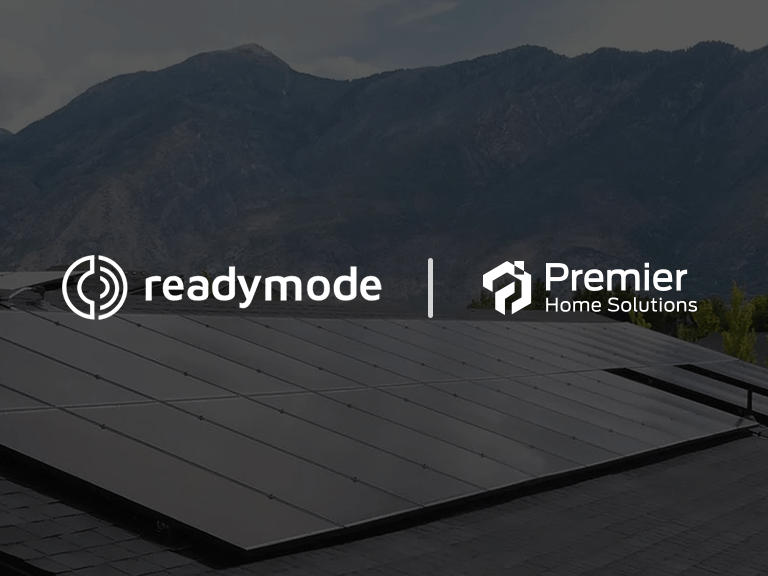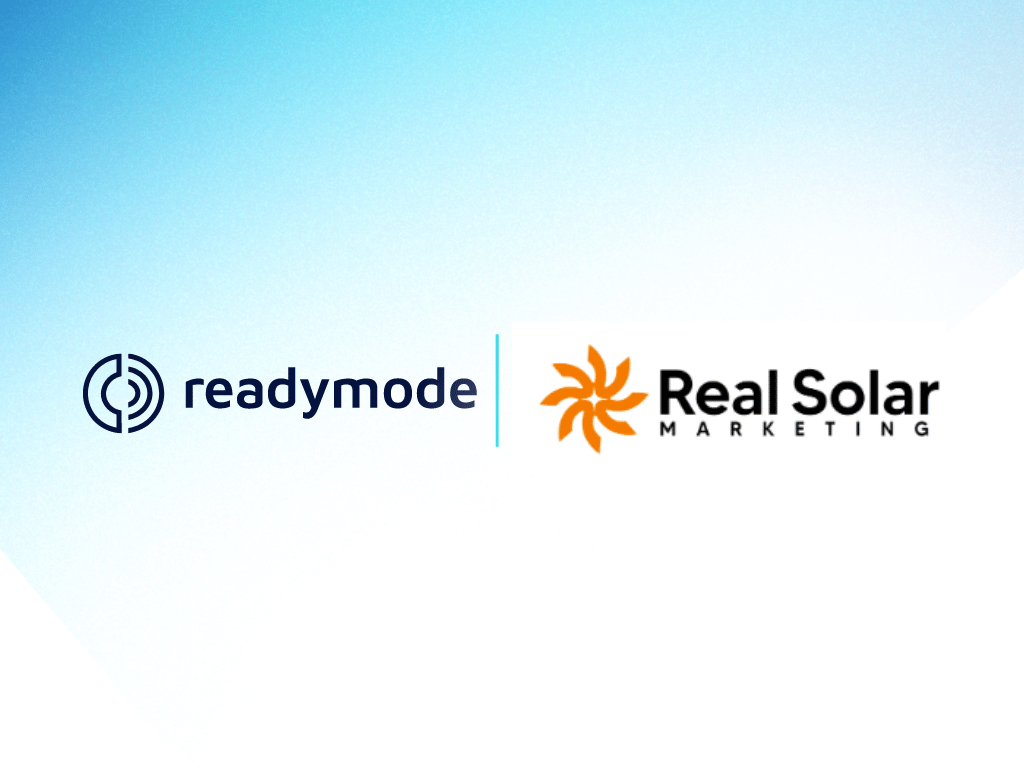Growing your solar business starts with a script that makes selling easier for your agents. A well-crafted sales script builds confidence, minimizes mistakes, and improves the customer experience.
But how do you create a script that works?
In this step-by-step guide, we’ll show you how to create the best solar script for selling over the phone—covering everything from qualifying leads to handling objections. With the right script in hand, your team will be ready to engage, connect, and close more deals.
Step 1: Do Your Research
Before picking up the phone, it’s essential to gather any relevant information you can about the leads you’re dialing. Customize your script to fit the local market, your lead’s intent, and meet compliance regulations.
Consider the Local Market
Buyers in states with lots of sunshine will have different motivations and experiences than others.
In states like California, where sunshine is abundant, homeowners may be motivated by potential savings on energy bills and environmental benefits.
Meanwhile, in states with less sunshine, such as New York, homeowners might need more emphasis on advancements in solar efficiency and long-term financial benefits.
Some states also offer solar incentives, like rebates or tax credits. Your sales agents can leverage these incentives as one of the many benefits of installing solar.
Match Your Lead’s Intent
Each of your leads are different—and your sales script should be too. Tailoring your scripts to match the intent of your leads can help create more positive interactions.
When dealing with high-intent leads, it’s crucial to remind them of their initial interest in solar. For example, if they’ve taken a previous action like signing up online for more information.
Start the conversation by confirming that you’re speaking to them at a convenient time before moving on with your well-crafted script. Since this group has already expressed interest in a solar solution, the goal of this conversation is to highlight the benefits of choosing you over a competitor.
On the other hand, when speaking with low-intent leads, you’ll need a different strategy. You won’t be able to rely on their existing interest in solar—they haven’t expressed any yet.
Instead, your goal is to gauge their understanding of what solar solutions are for them, and if they’re willing or interested in proceeding. Ask open-ended questions about their knowledge or experience with solar panels to create opportunities for positive follow-ups.
By encouraging them to share their thoughts, you can gradually guide the conversation toward a potential sale.
Follow Compliance Rules
Outbound calling, also called cold calling or telemarketing, is highly regulated in the United States. Regulations can vary significantly from state to state, like the mini-TCPA in Maryland. To maintain customer trust and avoid costly violations, you need to play by the rules.
Some key regulations to be aware of include:
- Telephone Customer Protection Act (TCPA)
- Telemarketing Sales Rule (TSR)
- National Do Not Call (DNC) Registry
While compliance may seem intimidating, it doesn’t need to be. Our Call Center Compliance Checklist can help you learn the basics. Plus, you can use calling software that has built-in compliance features, making it easier to stay on track.
Step 2: Write a Script from Initial Contact to Lead Qualification
Now that you’ve done your research, it’s time to start writing. While creating your script, think about the customer journey and what you want to achieve. Your script should address common objections and provide clear reasons why you’re the right solar provider for your leads.
Make a Great First Impression
Your chance to connect with your lead (or lose them completely) begins the moment the call starts. Greeting your leads effectively is an essential piece of crafting winning scripts.
First, make it clear who you are and why you’re calling. Being transparent will help you build trust and show your lead that you respect their time.
Rather than starting with an impersonal question, try personalizing your approach by using your lead’s name. This helps create a personal connection and increases the likelihood of successfully continuing your call.
Next, leverage your knowledge of the target audience outside of just the solar system you’re selling.
When calling about a residential property, keep the tone friendly and casual. Focus on personal benefits, like home energy savings and property value.
For commercial property leads, take a more professional approach. Emphasize return on investment (ROI), energy reliability, and the role of solar in supporting business sustainability.
Greeting Examples
- For High-Intent Residential Leads: “Hi [Name], this is [Your Name] from [Company]. I noticed you recently reached out to learn more about solar energy options for your home. I’d love to answer any questions you might have and discuss how solar could start saving you money. Is now a good time to chat?”
- For Low-Intent Commercial Leads: “Hello, [Name]. I’m [Your Name] from [Company]. Many businesses in [City/Area] are exploring solar as a way to save costs and enhance their commitment to sustainability. Is that something your company has thought about, even in the long term?”
Get Their Appointment Booked
Scheduling an in-person evaluation is a critical step in the solar sales process. Create a script centered around scheduling an appointment before asking filtering questions about eligibility. Here are some tips to help you create a winning solar sales script.
Act Quickly
Time is important, so don’t spend too long on extra details. Once you’ve figured out if someone is interested, move on to scheduling an appointment right away.
Make it Simple
Make sure your leads know it’s easy to check if solar is right for their home. Tell them you have a solar specialist nearby, like in their neighborhood or city, and ask if they want to schedule an appointment soon to save money.
Offer Choices
Like in any sales situation, it’s good to give your customers options. For example, if you can have a specialist visit them tomorrow, suggest a few times like 3:00 pm or 6:00 pm.
Even if the times are close together, it shows your lead that you value their time and are willing to be flexible.
Be Ready to Explain
Some prospects might want to know exactly how much they can save with solar. You might not be able to provide all the details, but you can include a polite response in your script.
Your script can explain that an in-person appointment is necessary because every home and solar setup is different. This way, you’re prepared for any questions or doubts.
Qualify Leads After Appointment Confirmation
Once you’ve secured an appointment, confirm the lead’s eligibility with a set of screening questions. Express that you respect their time and want to ensure they’re the right candidate for solar with a few extra questions.
Examples of Questions to Ask
- “Do you own your home, or are you currently renting?”
- “Who is your current electricity provider, and do you know approximately how much you spend on electricity each month?”
- “Would you say that your roof has lots of shade, a little, or none at all?”
- “Are you the primary decision-maker for home improvements, or is there anyone else involved in the decision?”
- “Is your roof in good condition, or do you have plans for repairs or replacements in the near future?”
Counter Common Solar Objections
Addressing objections is a crucial skill in solar sales. Common objections may include concerns about affordability, environmental impact, or doubts about solar’s effectiveness.
Prepare well-researched rebuttals to overcome these objections and keep the conversation moving in a positive direction. Here are some common objections and how to tackle them.
“I can’t afford solar right now”
As with many products and services, cost is a common concern for solar buyers. To overcome this, share real examples of how solar can help them save money in the short-term or long-term.
Depending on your offers, you can share information about affordable payment plans, state-level solar incentives, or how much similar buyers save on their electric bills each month.
“I’m not interested in solar”
This objection is much more common for lower-intent leads. For them, it’s best to lean on pain points outside of green energy.
For example, highlighting how solar can protect them from unexpected rate hikes from their utility company, and how it can increase their property value if they’re looking to sell their home in the future.
“I don’t have time right now”
Like you, customers have busy schedules. Being flexible can help you avoid losing a valuable lead. While you’re on the call, provide options for different appointment times, or ask if you can call back at a later time to arrange a meeting in the future.
“I don’t think it’ll look good” OR “I don’t think I get enough sun”
These two are by far the most common objections to solar sales. The most effective response you can use in this situation is to emphasize the importance of an in-person appointment.
For example: “Our expert technician can take a quick look during a free consultation. And of course, we won’t move forward if your home isn’t a good fit. As mentioned earlier, we’ll be in your area on [Date]. Can we schedule a time that suits you then?”
Step 3: Measure Your Success
In addition to creating effective sales scripts, it’s essential to monitor key metrics that can help you optimize your outbound calling. Here are 5 of the most important metrics to track for successful solar sales.
1. Cost Per Lead (CPL)
The cost of your leads is likely one of your biggest expenses. Measuring the cost of acquiring leads helps you understand how much you’ll need to invest to grow your business.
Talking to others in your industry can help you create a benchmark for your CPL and identify areas for improvement.
2. Speed to Lead
Quickly responding to leads is crucial to stay ahead of the competition. Dialing software like Readymode™ includes advanced call routing and blended inbound and outbound calling, so your agents never miss a lead.
3. Contact Rate
High speed to lead sets the stage for improved contact rates—but that’s not the only thing that matters. The right predictive dialer is necessary to help you respond quickly to leads and achieve a strong caller ID reputation.
Nearly every outbound sales team struggles with call blocking and flagging. With a dialer that includes caller ID reputation monitoring, you can avoid showing up as “Spam” or “Scam Likely,” and improve your contact rates.
4. Sit Rate
Sit rate represents the percentage of leads who ultimately “sit” in a sales appointment or site assessment. This metric can provide valuable insights into how your sales agents and field teams are working together. A low sit rate indicates a breakdown in the process, highlighting missed opportunities and inefficiencies in the sales funnel.
A sales dialer with built-in CRM can streamline the scheduling process and minimize appointment no-shows. This helps businesses enhance their sit rates, resulting in more successful solar installations and increased revenue.
5. Cost Per Acquisition (CPA)
Monitoring CPA helps you assess the efficiency of your entire solar sales operation. Plus, it highlights areas for improvement, such as agent training and alignment between marketing and sales.
Strong call center reporting and analytics tools can help you get the detailed insights you need to improve your CPA. For example, which sales scripts, agents, and targeting criteria are fueling your revenue.
How to Leverage Dynamic Scripting to Maximize Results
Dynamic scripting can be a game changer for solar sales. This technology allows you to generate custom scripts based on your lead data, so you can personalize every conversation—and close more deals.
Other Benefits of Dynamic Scripting
- Improve Consistency: Ensure all agents deliver a unified message while still allowing room for personalization.
- Ensure Compliance: Create custom scripts to meet state and federal regulations, reducing the risk of costly violations.
- Increase Lead Engagement: Deliver timely, personalized messaging that resonates with leads, improving engagement rates across the board.
With Readymode™, your team can benefit from an all-in-one predictive dialer that has built-in dynamic scripting, lead management, CRM, and more.
Interested in learning more? Book your demo today and see the results firsthand.
Final Thoughts
An effective solar script is the foundation of turning leads into loyal customers. By tailoring your scripts to local markets and lead intent—and leveraging the right calling technology—you can stand out in a competitive industry.
Tracking key metrics also ensures you’re not just working harder, but smarter. It gives you the insights needed to refine your strategy and boost results over time.
The secret to writing the best solar script is simple: research carefully, write intentionally, and never stop improving.
Readymode
About Readymode®
Readymode is a cloud-based, outbound customer engagement platform for sales teams. Our all-in-one platform empowers businesses to engage smarter, connect more, and grow their revenue. Along with an industry-leading predictive dialer, our outbound calling solutions include advanced features like fully integrated CRM, built-in compliance tools, and real-time reporting and analytics. Readymode is at the core of the conversation; we’re designed for businesses that want to maximize productivity and scale affordably.








